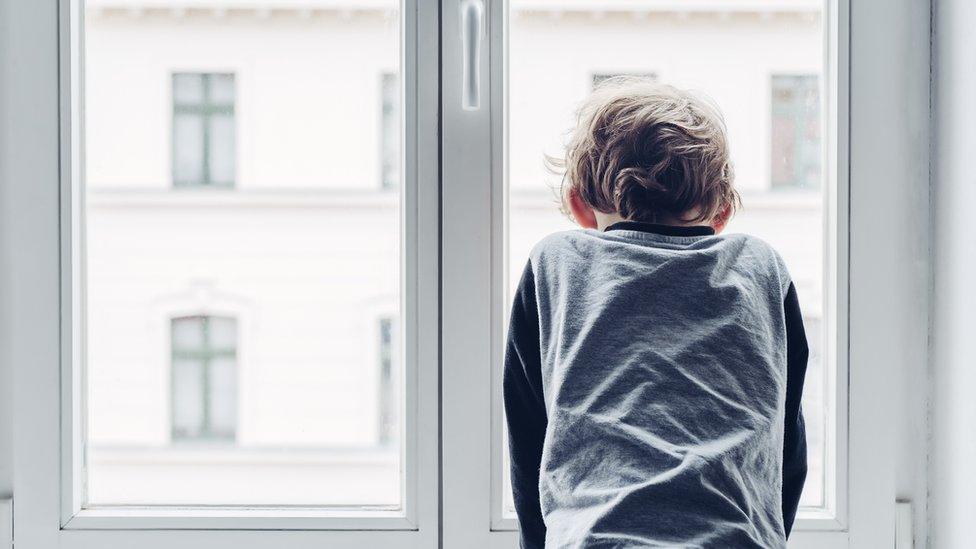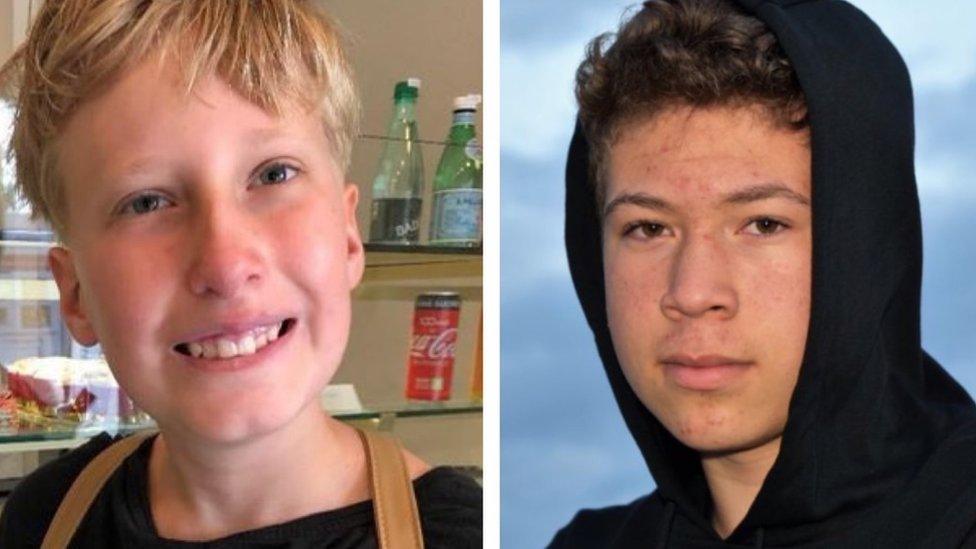Kent and Medway young people mental health cases rise after Covid
- Published

Enforced isolation during the Covid-19 pandemic affected many children's mental health, the NHS says
The number of children and young people being referred to specialist mental health services in Kent and Medway has risen by more than 28% in two years.
Figures obtained by the BBC show 24,079 young people were referred to Children and Adolescent Mental Health Services (Camhs) in 2021/22.
This was an increase from 18,693 who were referred to Camhs in 2019/2020.
The NHS says the Covid pandemic has had a big impact on children and young people's mental health.
Gill Burns, the Children's Services Director for Essex and Kent at the North East London Foundation Trust (NELFT), said: "It's very well recognised and documented that during the pandemic people have very long periods of isolation.
"From a children's perspective, lots of protection of their mental health is around their school, their relationships with the family and friends and their peer groups."
'So much added pressure'
Ben West, from Frittenden, has been raising awareness after his brother Sam died when he was 15 years old.
He said: "We've seen so much added pressure now on young people.
"We've had Covid-19, not seeing their friends for a while, the pressure of exams, university admissions are at an all-time record high, the pressure to get out of university and get a job is at an all-time high."

Analysis
By Mark Norman, BBC South East health correspondent
Children and young people's mental health has never been so high on the public agenda, and once you avail yourself of some of the statistics surrounding the issue you realise why.
With one in six school children experiencing mental health issues, it's startling to realise that there is an average 10-year delay between them displaying their first symptoms and getting help from mental health professionals.
The situation has got so bad in some areas that parents and teachers have said previously that they had lost faith in the system.
A consequence can be that distressed children can end up in A&E because of not having anywhere else to go.

BBC Radio Kent discovered in 2021/22 almost one third of young people were seen within four weeks of referral, but a similar number were still waiting for an appointment after a year.
In the previous year 20% were seen within four weeks and 39% had not been seen for a year or more.
Ms Burns said: "In the main, all of our patients that are presenting with mental health problems are seen within 18 weeks.
"Children that present as urgent are seen within a matter of days, and children who present as in crisis are all seen within four hours."

Follow BBC South East on Facebook, external, on Twitter, external, and on Instagram, external. Send your story ideas to southeasttoday@bbc.co.uk, external.
Related topics
- Published16 June 2022
